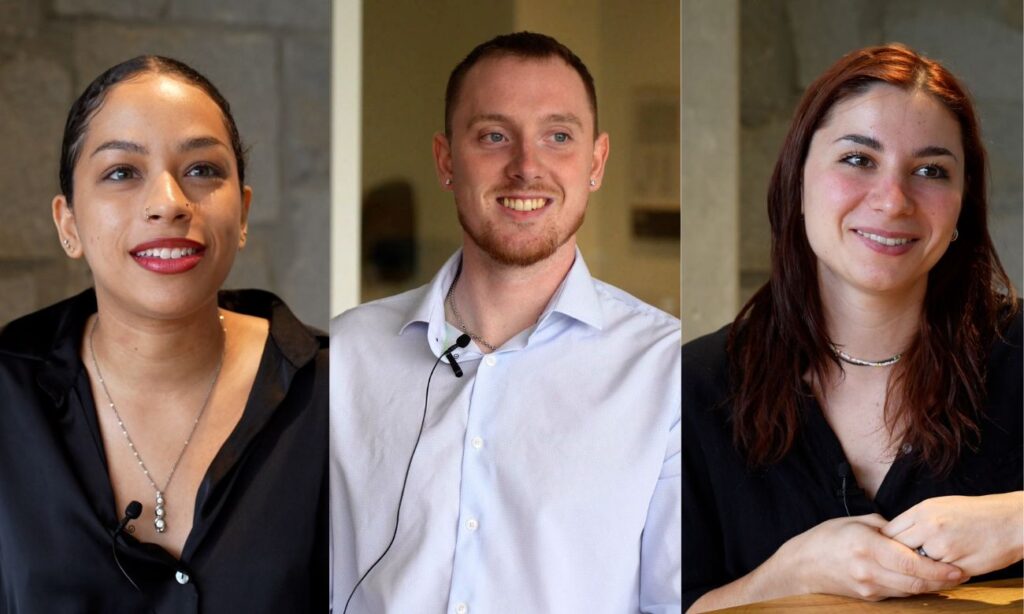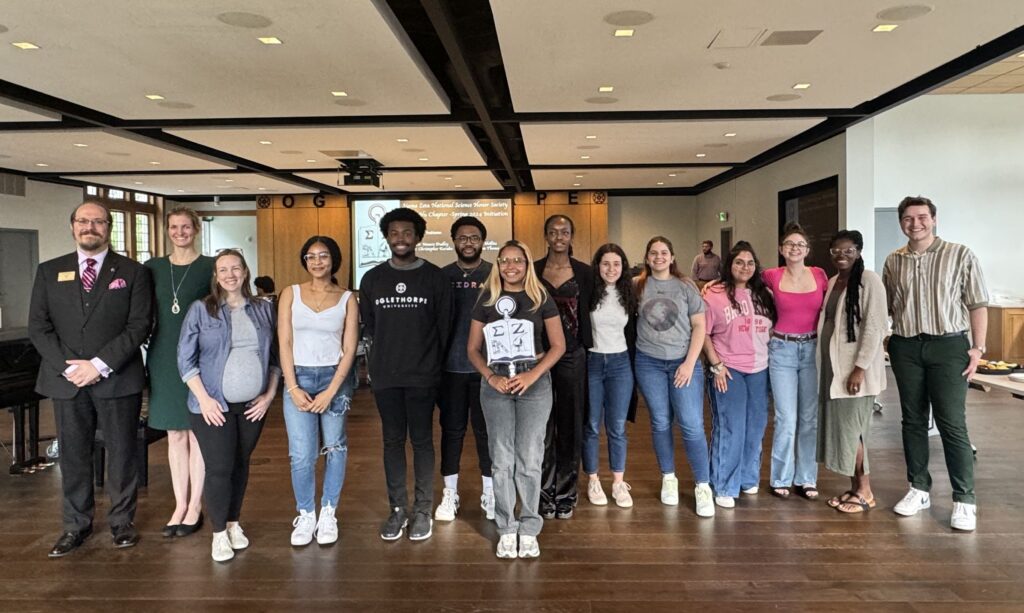- OFFERED AS
- PROGRAM TYPE
Prepare for a career that you can count on.
In the era of Big Data, actuarial scientists play an integral function in business, insurance, stocks, government, commerce and more data science industries. An actuary’s role includes evaluating risks, maintaining economic stability in an organization, predicting future outcomes and helping companies make decisions.
OU actuarial science graduates are interdisciplinary professionals who use mathematical, computational, business, ethical and communication skills to quantify risk, manage it and make sound decisions based on data. Students in the Actuarial Science track can expect a solid foundation in
- Accounting
- Business
- Computer Science
- Economics
- Mathematics
In addition, we encourage you to take Communications classes and Ethics classes to ground what you are learning in rich ways. Writing and presenting are hallmarks of our program – in required and elective courses and in Oglethorpe’s signature Core Curriculum. You’ll build career skills alongside ethical skills to be able to interact with the challenges and opportunities of the world today.
Our curriculum is built to match the realities in the current actuarial job market. We are one of only two universities in Georgia that have a full Actuarial Science program. When you factor in Oglethorpe’s small class sizes, supportive cohort-based classwork, interdisciplinary skills embedded in program requirements and electives, and our location in Atlanta, it is a powerful choice to study here.”
Dr. John C. Nardo, Professor of Mathematics
-
Hands-on Learning
-
Career Opportunities
-
Degree Requirements & Courses
Students, with the advisement of their professors, work to complete a capstone for actuarial science, usually in the final year of the program.
Passing national actuarial examinations is required to open doors for many internships and employment options. While most programs prepare students for 1-2 exams, Oglethorpe’s Actuarial Science program prepares students to take 5-7 exams, expanding your career options and salary range:
1. Probability
2. Financial Mathematics
3. Fundamentals of Actuarial Mathematics (Beginning Short-Term and Long-Term Actuarial Mathematics)
4. Statistical Risk Models (Machine/Statistical Learning)
5. Advanced Short-Term Actuarial Mathematics
If students do a (formal or informal) independent study on one chapter of the textbook we cover for “Statistical Risk Models,” then they can take an additional exam.
6. Predictive Analytics
If the students take a second capstone, then they can take an additional exam.
7. Advanced Long-Term Actuarial Mathematics
NOTE: Though we are using the names for the national actuarial examinations given by the Society of Actuaries (SOA), OU students can do a comparable number of exams for the other main national society, the Casualty Actuarial Society (CAS). The same doors get opened for internships, jobs, and salaries as with SOA.
The U.S. Bureau of Labor Statistics (BLS) estimates that employment opportunities for actuaries may increase by 24% between 2020 and 2030. U.S. News & World Report rate being an Actuary as #7 in Best Business Jobs and #11 in Best STEM Jobs.
- With a top-notch portfolio of in-demand skills, actuarial science graduates have a number of options for great careers in business, industry, mathematical finance and data analytics.
- Others are deepening their expertise by pursuing graduate degrees in mathematics
- or passing on their knowledge as teachers and professors.
See degree requirements and course descriptions in the University Bulletin.
STEM and Research At Oglethorpe
Latest News
- Alumni, Featured, Giving
- Academics, Career Development, Featured





